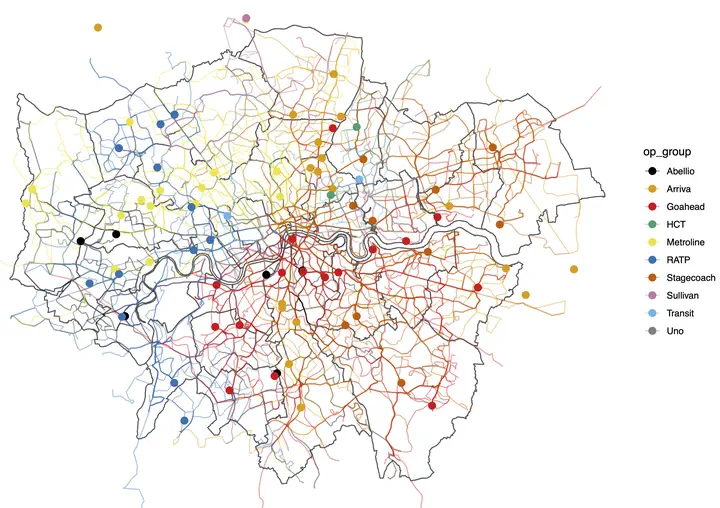 Spatial segregation of Bus Garages and Route Ownership in London
Spatial segregation of Bus Garages and Route Ownership in LondonAbstract
This paper estimates a structural model of the market for public bus transportation services in London, which links the value of a bus garage to expected profits from bus route procurement auctions. The model is used to derive the spatial rents associated with owning a garage with a certain centrality in the network of garages and routes, i.e., the benefits of having low transportation costs, being far removed from competitors, and having multiple garages clustered together. We exploit the unique features of the London bus industry to recover these rents using a standard discrete choice estimator, reflecting the highly complex location choice problem of heterogeneous multi-plant firms competing in an economy with spatial rents. Even a parsimonious specification is shown to capture remarkably well the observed changes in the garage-operator network since the privatization of this industry in 1994, as constructed from archival data and bus spotter sites. Counterfactual simulations reveal an efficiency loss of £18m to £27m per year, of 6.5%-9.8% of the total procurement cost of providing public bus transportation in London, resulting from operators holding out the sale of their garages. The degree to which profitable garage transactions are blocked is lower in periods when more firms enter the market, consistent with anti-competitive market-sharing behavior.